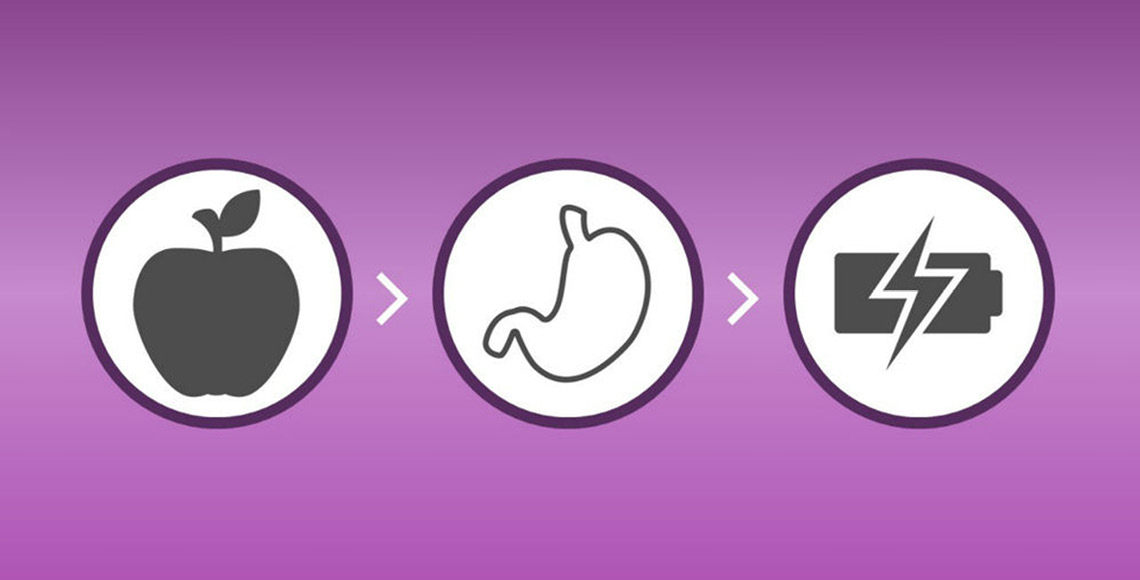Motivate Your Metabolism
It’s a word some of us throw around a lot when we talk about our weight: “She must be blessed with a fast metabolism.” “I’m overweight because I have a slow metabolism.” “I hope this exercise speeds up my (here it is again) metabolism.”
What is this powerful thing called metabolism?1 It’s the process your body uses to convert calories you eat and drink into energy you burn. Those calories combine with oxygen to release energy your body needs to breathe, circulate blood and carry out other basic functions. You also use that energy when you exercise. The reason people talk about metabolism so much when it comes to weight is that the balance between the calories eaten and energy burned is what ultimately determines how much you weigh.
The next question becomes, how much control do we have over our metabolism? Is it true that some people have naturally fast metabolisms that prevent them from ever gaining excess weight?
The answer is, yes and no. Your baseline metabolism is only part of the story. There are things you can do to tip the equation. Here are some factors that affect your metabolism:
Strength train
Research2 has shown, strength training exercises like the Curves circuit can help boost your resting metabolism. Muscle tissue burns more calories than fat, so the more muscle you have on your body, the more calories you will burn. As a bonus: strength training helps fight back against some of the muscle loss that goes along with aging and weight loss. The more toned your muscles, the fitter you will look and feel. Another benefit: Strength training helps maintain bone health, too.
Don’t try an easy way out
There are countless products and supplements on the market that claim to help boost metabolism or help with weight loss. Be careful. Not only do many of these products not work, some can even have unpleasant or dangerous side effects. The best way3 to lose weight is to eat less and exercise more.
Don’t sweat it
The small stuff, that is. Ongoing psychological stress can lead to4 fat storage and weight gain. In one study5, women who had a stressful day before eating a high-fat meal burned fewer calories after the meal than women who were stress-free. Over time, the researchers concluded, the difference could lead to a weight gain of 11 pounds a year.
Meditate for your metabolism
Daily meditation is one way you can reduce stress and fight weight gain. In a study6 published in the Journal of Obesity, researchers divided a group of 47 overweight women into two groups. Both groups received training on diet and exercise. The experimental group also received training on mindful eating and meditated for 30 minutes a day for four weeks. At the end of the study, women in the control group gained weight, and those in the meditation group maintained their weight and saw significant decreases in their levels of the stress hormone cortisol.
Drop pounds at a good pace
There were a lot of pounds lost on the television show, The Biggest Loser. Contestants lost as many as 239 pounds in a mere seven months. But those who lost the weight did so at a price: a slower metabolism. A follow up study7 on 14 participants six years after the show found most regained the weight. The study, done at the National Institutes of Health, found that 13 of 14 contestants regained an average of 90 pounds each. The researchers also found their metabolic rates dropped from 2,607 calories to 2,000 calories per day. To avoid a similar shock to your system, the Dietary Guidelines for Americans8 recommend you lose 1 to 1.5 pounds per week.
Drink H20
You may be able to speed up your metabolism by drinking more water. A small study9 found those who drank 500 ml of water per day (about 17 ounces) increased their metabolic rate by 30 percent. Water prevents overeating and helps your body metabolize food. If you’re not a fan of water, add some slices of lemon, lime, or another fruit to make it tastier and more refreshing.
To find out more about how you can informed lifestyle and health choices, visit our blog under the ‘Live’ category! You can also learn more about how the Curves Circuit can benefit your lifestyle here.
Sources







